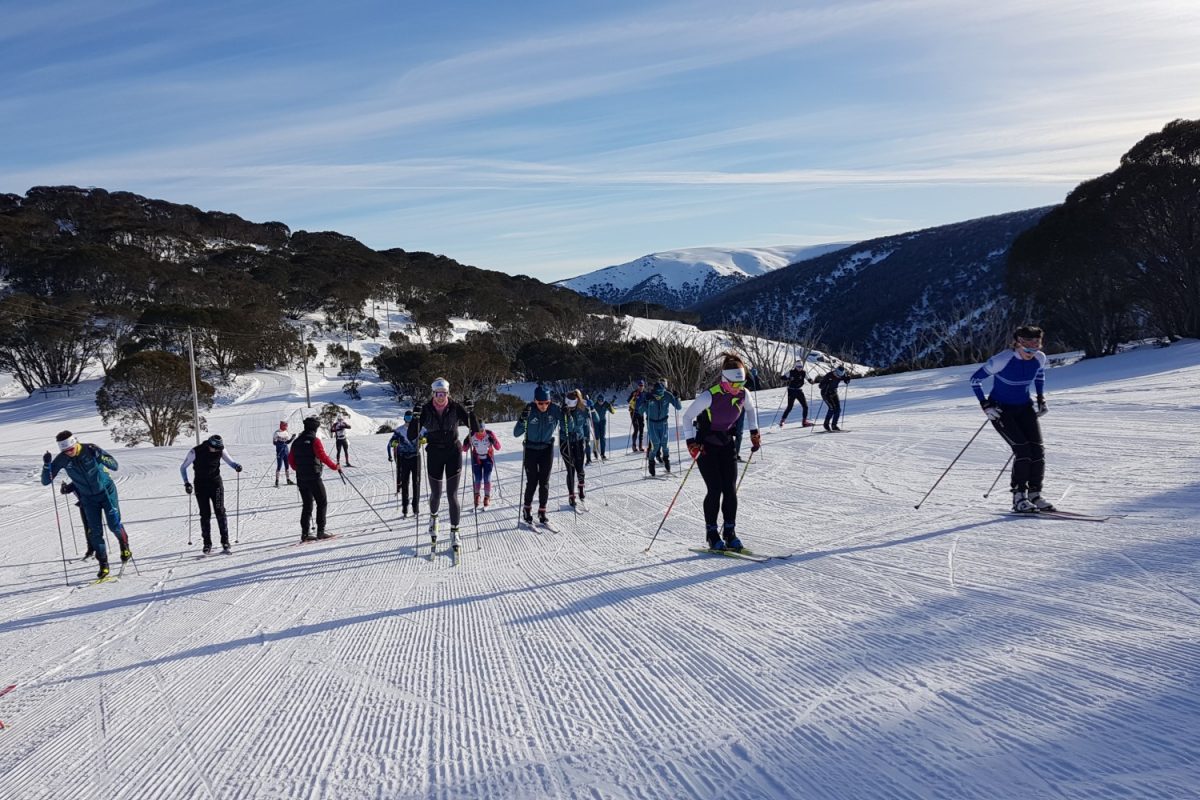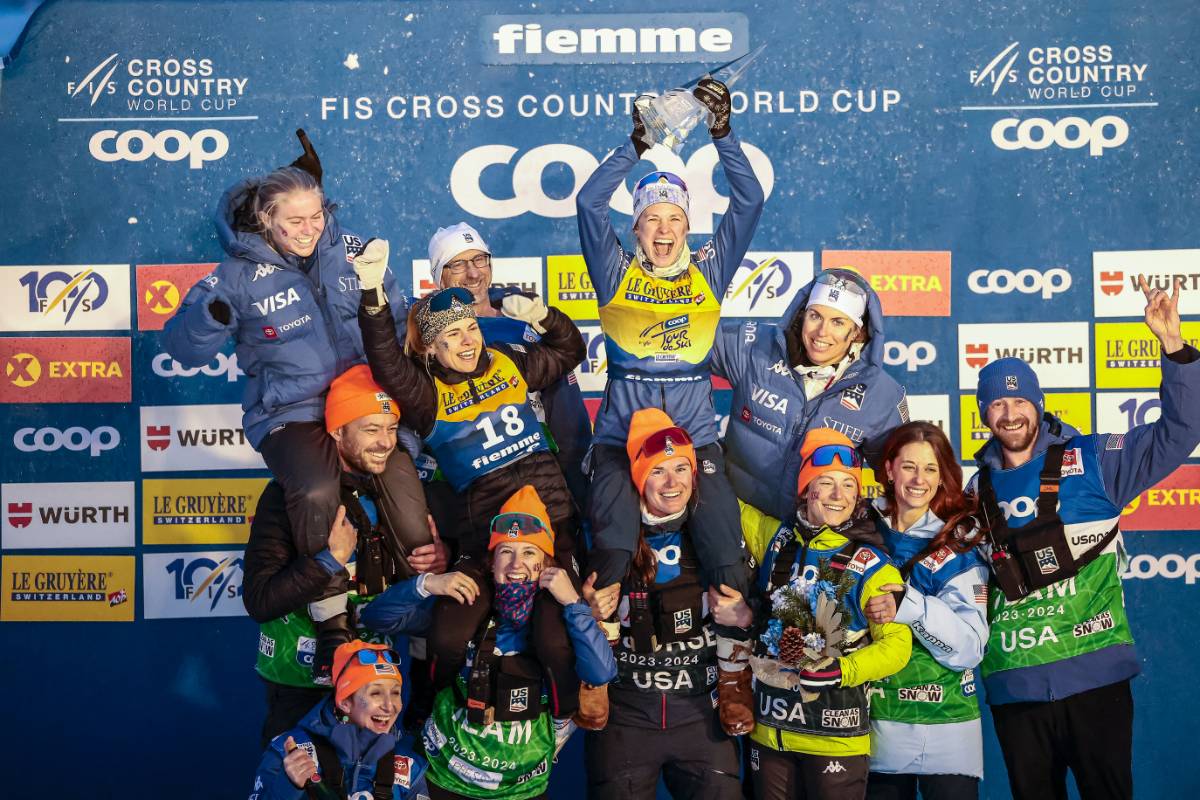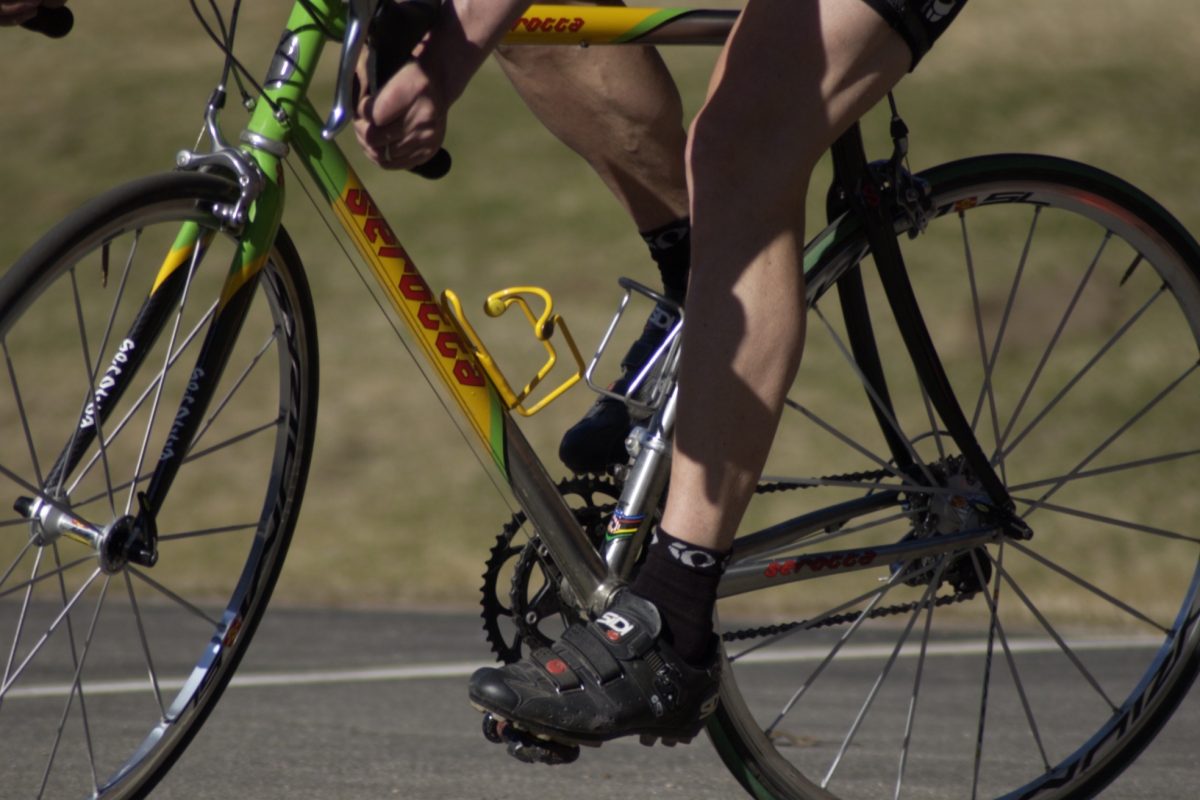Brayton Osgood currently skis for the XC Oregon team. A two-time All-American while attending Dartmouth College, Osgood has had five seventh-place finishes at Senior Nationals, including one last year in the 10 k skate in Anchorage, where he also finished eighth in the sprint. We caught up with him in the middle of a visit to the east coast.
Note-Osgood was even more articulate and thoughtful than he comes across as during the interview, but due to an error by the author, his responses were not quite captured in full. FasterSkier regrets the error.

FasterSkier: So you’re out in Bend, training with XC Oregon. I’ve heard only great things about training out there. Can you tell me a little bit about what it’s like out there?
Brayton Osgood: The spring ski season that we get is pretty ridiculous compared to anywhere else in the country. We were skiing on snow until end of May this year, and that’s standard.
After that, for dryland for the rest of the year, we’re in the desert here-it gets a little hot, but for the most part, you have perfect weather all the time. I feel like I miss out on a little bit of the toughness training you get out in the east.
FS: Would you agree that you XC Oregon guys keep a bit of a lower profile than APU, CXC, Sun Valley? It seems like you have some people getting just as good results, but you’re just a bit quieter about it. Why do you think that is?
BO: I think that JD [Downing, the XC Oregon coach] probably brought a different philosophy to XC Oregon when he started it than some of the other clubs. I think it started with shoestring budget, and minimal funding. It’s about having a lifestyle that you can sustain and then keep skiing going-the club isn’t trying to be everything to us. Part of that is that JD doesn’t’ really travel to races with us. We get a little bit less direct support than other clubs, but for the most part it works out if we can get our industry team to show up and help us. And then there are some times when we’re a little bit more on our own.
FS: So, tell me a little bit about some of your racing last year. Obviously, not all of it-I’m interested in some of the European racing you did. How about the Engadin marathon? What was it like being with the whole slew of crazy Euros?
BO: It’s bigger than the Birkie, and more crazy in some ways-I think there’s like 10k people that did the full-length marathon this year. They stage everybody at once-the first wave is like 2000 people. We got lucky and got straight on the front line-you look back and there’s guys back literally shoulder to shoulder five, eight rows deep.
The start scene is just crazy there. There’s definitely a lot of similarities to the Birkie. Diplomatically, it’s a slightly more scenic place. It was a really cool event and really fun to do. I’d definitely like to go back.
FS: How is the racing different over there?
BO: The biggest difference I’ve seen in Europe-this is having done two OPA Cup trips now-is the field is just a lot deeper. I think I ended up a minute out in Engadin, and the group until the last four k was 35 people or something. For the OPA Cups, you fairly frequently get people coming down who are taking the weekend off from the World Cup there. All the OPA Cups we did this year were either mass or wave start-you have a lot of chances to ski with people.

FS: So, this year-what are your goals? The Olympics, obviously?
BO: The main goal is to qualify for the Olympic team, and to go to Vancouver and do whatever I can. I don’t have any delusions about having some massively spectacular result at the Olympics-I’d be psyched to be there. Summer, fall training is geared towards making that team.
FS: One of your blog posts mentioned that you have been seventh place a number of times in the distance skate race at U.S. Nationals. In that regard, are you doing only minor tinkering with your training plan this year because you feel like you need only a minor improvement? Or are you doing some major tinkering because you feel like you need to be in the top couple?
BO: I think maybe a little bit of both. Going up and being seventh at Nationals again isn’t putting me on the Olympic team. I’ve definitely sort of been knocking on the door for a few years now. I’ve been trying different things, and hopefully it’s not a huge adjustment to really make it.
FS: What kind of adjustments are you making?
BO: The last few seasons I’ve had really good summer training and struggled to keep it going through the fall. I’ve been trying to stay make sure that I’m not doing too much, but at the same time not doing too little. It’s always a tough boundary to find. I’m taking August a little easier than I have for years past. I’m definitely at that point where things seem like they’re going well.
FS: I know you raced at Stratton for a year or two and also at Dartmouth, but two perhaps less conventional experiences you’ve had in your career were racing for MWSC and the Putney School, in Putney, Vermont, where Bill Koch went. Can you give me a couple of things you took away from those experiences?
BO: Stratton was actually my first year out of college. I was a teacher athlete. As a junior, being at Putney-I realized a lot of what helped there was that I learned to ski for me, and to do it because of what I wanted to do, and not really for anyone else. I had a few friends who got into it, and they acted as training partners for me, but I definitely wasn’t in an environment where I was going out every day with other juniors who were a lot better than me. So I think I realized it was something I really liked doing, and the process was something I enjoyed.
Maine Winter Sports Center-that was two years after Stratton, in 2005 and 2006. It definitely was a step up in terms of the race calendar I was doing. It was the first year on the Super Tour circuit, and the first time as a professional. It was good to have a training group and good to get a little more exposure of what the lifestyle is at the more elite level, as opposed to being in a junior college program.

FS: Having experienced a lot of racing in the northeast, and now being out west, do you feel like the national racing circuit is at all unbalanced towards the west and central, in terms of Super Tours or nationals? Do you wish you got to do more racing over here?
BO: I came back for those Super Tours at Trapp’s, and I also did [the] Craftsbury [Marathon] and the Dartmouth Carnival. I think that was the first time I’d raced in the east for two or three years. It was great to have those races back here, and I’d love to see more racing on the national calendar on the east.
The calendar definitely seems to have a bit of a western tilt. I’ve definitely been in the Midwest a lot, and gone through a lot of frustration with races being cancelled with lack of snow, or it being too cold, and this and that. I wouldn’t say that they’re any more reliable. I think it would be great for senior skiers in New England to have more Super Tours in the east, and I think it would be really good for the country as a whole.
The other side of that, is, one of the things when I left Maine Winter Sports Center was at that point, there weren’t any Super Tours in New England, and it didn’t look like there were going to be any any time soon. It’s tough to have to get on a plane for all the races all year-it’s a little easier to be able to drive to West Yellowstone, and to be a little closer to the racing. So I think if the east coast had a few more national level races on it, it would be much easier to be a senior athlete in the east, and I think that’s something that NENSA (New England Nordic Skiing Association) has grappled with.
FS: What are you going to do after you’re done skiing?
BO: I keep trying to figure that out. I don’t necessarily need to hang around the sport if things don’t come together. For the last year I’ve been doing some web programming for work. I’ve also worked for a lawyer for a little while, and I’ve done tax returns for an accounting firm. I’ve been trying to get some real world experience. I’m probably a bit more informed about career options than I was before I moved to Bend.
Nathaniel Herz
Nat Herz is an Alaska-based journalist who moonlights for FasterSkier as an occasional reporter and podcast host. He was FasterSkier's full-time reporter in 2010 and 2011.



